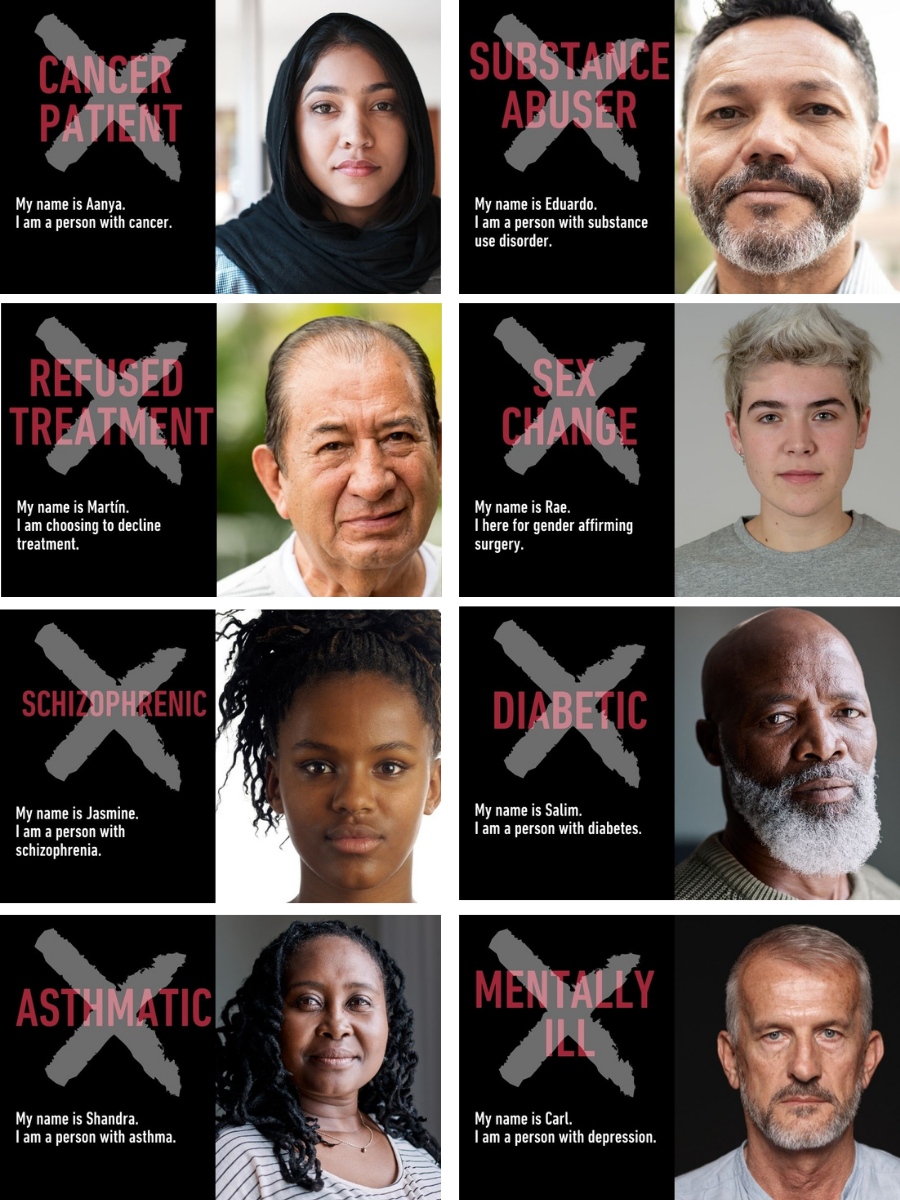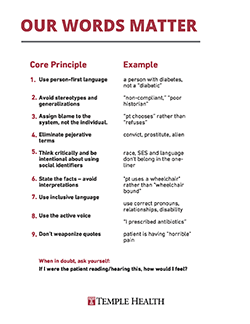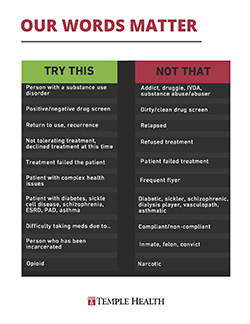Language changes over time and across different contexts, and we need to continually re-evaluate the words we choose. Through the Our Words Matter training, we strive to improve the language we use to support an optimal patient experience.
Consider these core principles:
- Use person-first language
For example: a person with diabetes, not a “diabetic” - Avoid stereotypes and generalizations
For example: “non-compliant,” “poor historian” - Assign blame to the system, not the individual
For example: “pt chooses” rather than “refuses” - Eliminate pejorative terms
For example: convict, prostitute, alien - Think critically and be intentional about using social identifiers
For example: SES and language don't belong in the one-liner - State the facts – avoid interpretations
For example: "patient alleges/claims 10/10 pain" - Use broad language
For example: "pt uses a wheelchair" rather than "wheelchair-bound" - Use the active voice
For example: “I prescribed antibiotics” - Don’t weaponize quotes
For example: patient is having "horrible" pain
When in doubt, ask yourself: If I were the patient reading/hearing this, how would I feel?


